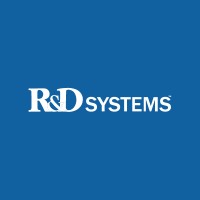EphB2 Monoclonal / APC / 512012
Product Details
| Description | Human/Mouse EphB2 APC-conjugated Antibody | |
|---|---|---|
| Conjugate | APC | |
| Clone | 512012 | |
| Target Species | Human, Mouse | |
| Applications | FC | |
| Supplier | R&D Systems | |
| Catalog # | Sign in to view product details, citations, and spectra | |
| Size | ||
| Price | ||
| Antigen | ||
| Host | ||
| Isotype |
About EphB2
This gene encodes a member of the Eph receptor family of receptor tyrosine kinase transmembrane glycoproteins. These receptors are composed of an N-terminal glycosylated ligand-binding domain, a transmembrane region and an intracellular kinase domain. They bind ligands called ephrins and are involved in diverse cellular processes including motility, division, and differentiation. A distinguishing characteristic of Eph-ephrin signaling is that both receptors and ligands are competent to transduce a signaling cascade, resulting in bidirectional signaling. This protein belongs to a subgroup of the Eph receptors called EphB. Proteins of this subgroup are distinguished from other members of the family by sequence homology and preferential binding affinity for membrane-bound ephrin-B ligands. Allelic variants are associated with prostate and brain cancer susceptibility. Alternative splicing results in multiple transcript variants. [provided by RefSeq, May 2015]
This gene encodes a member of the Eph receptor family of receptor tyrosine kinase transmembrane glycoproteins. These receptors are composed of an N-terminal glycosylated ligand-binding domain, a transmembrane region and an intracellular kinase domain. They bind ligands called ephrins and are involved in diverse cellular processes including motility, division, and differentiation. A distinguishing characteristic of Eph-ephrin signaling is that both receptors and ligands are competent to transduce a signaling cascade, resulting in bidirectional signaling. This protein belongs to a subgroup of the Eph receptors called EphB. Proteins of this subgroup are distinguished from other members of the family by sequence homology and preferential binding affinity for membrane-bound ephrin-B ligands. Allelic variants are associated with prostate and brain cancer susceptibility. Alternative splicing results in multiple transcript variants. [provided by RefSeq, May 2015]
About APC
Allophycocyanin (APC) is a fluorescent protein derived from cyanobacteria and red algae and a potent donor fluorophore to create tandem dyes that can be excited off the 633-640 nm laser. APC has an excitation peak at 650 nm and a emission peak at 660 nm.
Allophycocyanin (APC) is a fluorescent protein derived from cyanobacteria and red algae and a potent donor fluorophore to create tandem dyes that can be excited off the 633-640 nm laser. APC has an excitation peak at 650 nm and a emission peak at 660 nm.
Experiment Design Tools
Panel Builders
Looking to design a Microscopy or Flow Cytometry experiment?
Validation References
Reviews & Ratings
| Reviews |
|---|
Looking for more options?
329 EphB2 antibodies from over 21 suppliers available with over 54 conjugates.
Selected products
0





